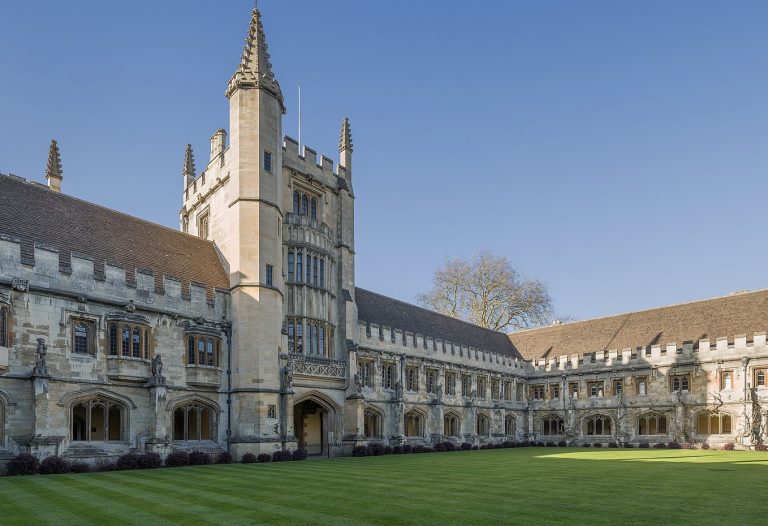Congratulations! If you’re reading this, you’ve accomplished something truly remarkable. Making it this far in the Oxford or Cambridge economics application process is no easy feat, and you should be immensely proud of your achievement.
As you’re probably aware, the interview is the final hurdle before receiving the grades that will open the doors to these prestigious universities. Like interviews for coveted jobs, placements, or other opportunities, these are designed to test your knowledge and abilities. But to make a lasting impression in an interview at one of the world’s finest educational institutions, you’ll need to put in a significant amount of effort.
Fortunately, there are several steps you can take to prepare and distinguish yourself from other high-achieving students. Here are our top three tips for effectively preparing for an economics interview at Oxbridge.
Story Stages
1. Brush up on your public speaking
When preparing for an economics university interview, it’s crucial to remember that there isn’t always a “right” answer to every question. As The Times Higher Education advises, “interviewers are less likely to want a single answer but are interested in seeing how people think through a problem, figure out what are the relevant factors, respond when new information is provided and so on.”
Sure, there will also be some fixed-answer mathematical questions in your interview (more on that later!) but it’s important to recognise the value of strong verbal communication skills. Brushing up on your elocution will not only boost your confidence, but also allow you to express your thoughts and insights clearly.
One way to prepare is to have conversations using suggested interview questions with your teachers, friends, or family members. These discussions give you a chance to practise speaking in a relaxed setting, while helping you get used to adapting your communication style and becoming more flexible in expressing your thoughts.
Another useful technique is to record yourself while you’re speaking. It might sound a bit strange, but it really helps! By listening to the recordings back, you can pinpoint areas for improvement, like your pronunciation, talking speed, or vocabulary choices.
2. Deepen your subject knowledge
“Suppose I roll a fair, six-sided die. Depending on the number that comes up, I win or lose money according to the following rules:
- If the die lands on a two or lower, I lose £20
- If it lands on an odd number, I win £60
- If it lands on a six, I win £240
What is the expected value of rolling the die?”
This typical mathematical-based interview question, proposed by an Oxford economics student, requires a solid understanding of key economic concepts in order to succeed in the interview. Expected value is not necessarily something that you will have mastered before applying to university, and that’s fine! However, excellent candidates will draw knowledge from other disciplines and apply the facts available to them.
You can make sure that you understand important economic concepts and theories by reviewing your A-level or equivalent syllabus. Focus on microeconomics, macroeconomics, econometrics, and mathematical techniques commonly used in economics.
However, if you come across challenging economic concepts that you can’t quite grasp, don’t worry — there is support available. For example, UniAdmissions offers an economics interview programme with one-to-one tuition. Led by experienced Oxbridge tutors, this course aims to assist you in developing a deeper understanding of the subject, going beyond what is covered in your curriculum. Engaging in courses like these can boost your confidence for the interview process.
3. Review your personal statement
Think by getting an interview that your personal statement is done and dusted? Think again. A well-crafted personal statement serves as a foundation for discussing relevant experiences during the interview. So, if you’re invited to meet with Oxbridge interviewers, it means that the tutors were impressed by your answer and want to learn more about what’s inspired you to study.
This entails two key aspects: being familiar with what you wrote and being ready to expand upon it. So, if in your statement, you bragged about your extensive reading of Karl Marx, admiration of “Kicking Away the Ladder” by Ha-Joon Chang, or a life-defining moment in which you realised you wanted to study economics at university, that’s fantastic! However, during the interview, be prepared to delve deeper into these points and provide more details.
As preparing for an interview at Oxbridge requires an understanding of economic principles, theories, and current affairs, further reading, like the super-curricular suggestions listed here can enhance your preparation.
Remember, the Oxbridge admissions tutors are just as passionate about economics as you are. So, when you’re in the hot seat, see it as a chance to share your enthusiasm. Think of it as an opportunity to have meaningful conversations, share your experiences, and express your genuine interest in the subject. Good luck!
